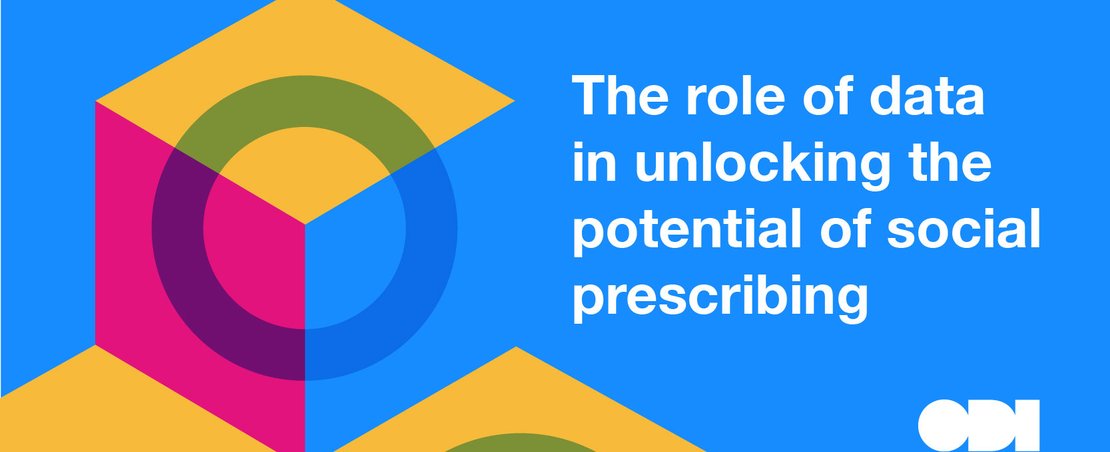
Update (February 2023): We have published an update to our social prescribing digital tool, which now includes the latest census data and 2022 Department of Work and Pension data on benefits related to disability, and allows users to explore changes over time.
Our report highlights the importance of data to those working in social prescribing. GPs, link workers, charities and other health and wellbeing practitioners could more effectively target issues such as mental health and improve provision of non-clinical interventions, from physical activity to assistance with social or welfare problems with improved data availability.
The report highlights how social prescribing, if it were to reach its full potential, could lead to improved health, redirected demand for NHS services, improved community cohesion and greater economic productivity.
It also finds that there are a number of barriers to social prescribing reaching its full potential, amongst them the lack of available data, and solid data infrastructure. Data infrastructure is information such as statistics, maps and real-time service-use data that could help social prescribers and the providers of services to make decisions, build services and gain insight.
This is a research study by Frontier Economics, with a digital tool from Mime Consulting, which looks at social prescribing demand indicators across England.
View the report by Frontier Economics (PDF)
Use our digital tool
This updated digital tool (created by Mime Consulting) shows factors that could lead to demand for social prescribing by English local authority areas, including everything from isolation and child poverty to back pain and hospital admissions.
This data could be used in the planning of different social prescribing services and could, in the future, be cross referenced with social prescribing outcomes by the NHS, local councils or national government.
The data that Mime compiled allows decision makers to see data for around 120 health and social issue measures, and this updated tool allows users to explore changes over time.
Explore the data and our methodology
Data ethics canvas
The team behind the report has completed this ODI Data Ethics Canvas as part of this research project, to ensure that the data was collected, used and shared in an ethical way.
Methodology
Frontier Economics deployed a pragmatic and robust methodology for this work. To facilitate a quantitative illustration of social prescribing’s potential impact on reducing NHS burdens Frontier Economics used several data sources:
- Historical volume of GP appointments: NHS Digital (2021). Appointments in General Practice.
- Cost of GP appointments: Unit Costs of Health & Social Care (2020). Curtis and Burns, University of Kent
- Evidence of unmet need for primary care: GP Patient Survey (2021).
Contextual data was also added from sources such as:
- Wellbeing data: ONS, 2021
- COVID-19 Mortality data: Health Foundation, 2021
- Waiting Times Data: NHS England RTT data, 2021
Mime Consulting collated local authority level data from a number of open data sources, which was cleaned, standardised and combined into one dataset. This dataset was analysed, including plotting correlations between measures, to draw out initial insights. Finally, this dataset was used to create an interactive tool in Tableau Public. The dataset was also published as an open Google Sheet.
Data was taken from the following open data sources:
- Public Health England Fingertips: Public Health Profiles
- Sport England: Active Lives Adult (16+) survey (November 2019/20 and November 2018/19)
- DWP: Children in low income families
- MHCLG: English indices of deprivation 2019
- NHS Digital: Measures from the Adult Social Care Outcomes Framework
- NHS Digital: Health and Wellbeing of 15-year-olds in England
What is social prescribing?
Social prescribing is part of Universal Personalised Care and seeks to address presenting issues that are outside physical clinical diagnosis, such as isolation, loneliness, anxiety, lack of physical activity and debt. These are often linked to some form of deprivation, such as poverty, homelessness or welfare issues.
Social prescribing link workers take a holistic approach to those given a social prescription by a GP, nurse, practice manager or physiotherapist. Link workers will empower people to address multiple issues and may refer them on to anything from an exercise class to a social club, community group, welfare charity or peer support network.
People will often repeatedly present at a GP or other clinical setting with these problems. Social prescribing breaks this cycle and saves GP hours and resources, as well as allowing those who are socially prescribed to take control of their lives once again.
‘Social prescribing is about recognising that our patients’ health and wellbeing are determined not just by the presence or absence of a clinical condition but also by a range of social, economic and environmental factors. By using social prescribing we seek to link people to appropriate community and social care services in order to address their needs in a more holistic way.’ – Dr Victoria Tzortziou Brown OBE, East London Health and Care Partnership lead on Research and NHS Tower Hamlets CCG Clinical Vice Chair and lead on Integrated Care.